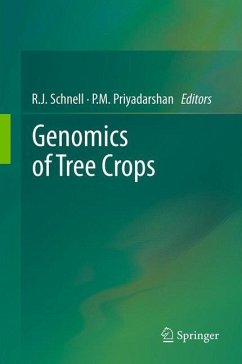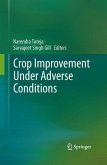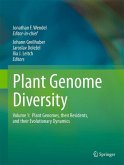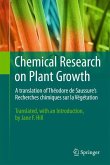Trees that are indispensably supportive to human life pose a formidable challenge to breed them to suit to human needs. From soft drinks to breweries to beverages to oil to tires, the value added products from trees give a spectrum of products to human kind. While attempts to tap these resources through conventional breeding are underway, the quick and elegant way of manipulating the genetic systems at the genome level is an essential chapter of modern science. Books featuring genomics of tree crops are few, and genomics is such a science that changes rapidly. Genomics of Tree Crops is an earnest attempt towards compiling genomics of tree crops.
Plant genomics has made monumental strides in the last decade providing insights into intra-genomic phenomena such as heterosis, epistasis, pleiotropy and other interactions between loci and alleles within the genome. In contrast, the investigation of the roles and functions of single genes is a primary focus of molecular biology and is a common topic of modern genetic research. A genome is the sum total of all of an individual organism's genes. Thus, genomics is the study of all the genes of a cell, or tissue, at the DNA (genotype), mRNA (transcriptome), or protein (proteome) levels. The complete sequencing of the three billion base pair human genome with 25,000 genes identified and the invention of DNA microarrays ushered in a new era in the science of genomics leading to explosive advancements in oncology diagnostics. This impetus into the genomics era lead the way toward advances in plant genomics which started with Arabidopsis thaliana and went through an array of crops such as rice, maize, papaya, various cereals and legumes, with pigeon pea added to the list towards the end of 2011. Trees, on the other hand, are the least attended taxa with regard to genomic research. Some of the areas that attained attention of the scientists are: DNA sequencing, bioinformatics, genomics of flowering, gene flow, spatial structure, local adaptation and assisted migration in trees, transformation of fruit trees, genomics of tropical and temperate fruit trees, genomics of Hevea rubber, genomics of papaya and genomics of palms. Genomics of Tree Crops compiles this information with chapters authored by experts on these crops.
Plant genomics has made monumental strides in the last decade providing insights into intra-genomic phenomena such as heterosis, epistasis, pleiotropy and other interactions between loci and alleles within the genome. In contrast, the investigation of the roles and functions of single genes is a primary focus of molecular biology and is a common topic of modern genetic research. A genome is the sum total of all of an individual organism's genes. Thus, genomics is the study of all the genes of a cell, or tissue, at the DNA (genotype), mRNA (transcriptome), or protein (proteome) levels. The complete sequencing of the three billion base pair human genome with 25,000 genes identified and the invention of DNA microarrays ushered in a new era in the science of genomics leading to explosive advancements in oncology diagnostics. This impetus into the genomics era lead the way toward advances in plant genomics which started with Arabidopsis thaliana and went through an array of crops such as rice, maize, papaya, various cereals and legumes, with pigeon pea added to the list towards the end of 2011. Trees, on the other hand, are the least attended taxa with regard to genomic research. Some of the areas that attained attention of the scientists are: DNA sequencing, bioinformatics, genomics of flowering, gene flow, spatial structure, local adaptation and assisted migration in trees, transformation of fruit trees, genomics of tropical and temperate fruit trees, genomics of Hevea rubber, genomics of papaya and genomics of palms. Genomics of Tree Crops compiles this information with chapters authored by experts on these crops.








